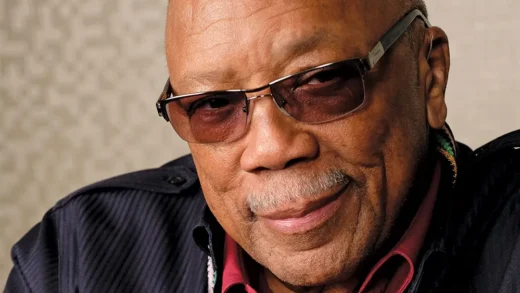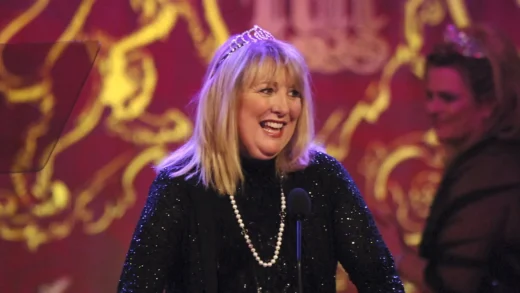A few years before Roger Ailes was ousted from Fox News, he boasted how the influential cable news network had never taken down a story because it was wrong. That wasn’t exactly true, but nevertheless, one doesn’t need to consume hydroxychloroquine to know that admitting error happens very rarely in Fox Nation. Of course, few journalists like to own up to mistakes. When they do, do they lose First Amendment protections?
The legal consequences for fessing up to error (if not going so far as to be apologetic) is coming up in court after Fox News retracted some of its reporting about the 2016 murder of Democratic National Committee staffer Seth Rich.
In a written opinion two weeks ago that has until now escaped any attention, a DC federal judge ruled that Fox News journalist Malia Zimmerman had to testify in deposition on several topics including the network’s decision to retract. On Wednesday, Fox News pushed that judge to change his mind — or at least retreat somewhat — with the warning that staying the course would “carry potentially significant consequences for Ms. Zimmerman, Fox News and other journalists beyond this specific subpoena.”
Rich was fatally shot in July 2016 in what police described as a mugging gone wrong. In conservative circles, however, some asserted that Rich had been murdered to cover for how he — and not Russian hackers — had infiltrated and leaked DNC emails to WikiLeaks. The conspiracy theory proved alluring to those wishing to discredit allegations that the Trump campaign had colluded with the Russians.
The legal fallout from Fox News’ Seth Rich reporting has been immense, and some of the decisions emanating from the subsequent lawsuits will reverberate for years to come. In particular, despite the presumption in media circles that the dead can’t be defamed, the Second Circuit Court of Appeals last September revived a suit against Fox News brought by Rich’s parents. The appellate judges accepted the proposition that media companies can be held liable for inflicting emotional distress. A few weeks earlier, a Texas judge allowed a lawsuit against National Public Radio over its reporting about Ed Butowsky, a Texas businessman with connections to the White House who allegedly pushed Fox News to publish its initial story about the Rich murder. (Butowsky was an unpaid guest on the network.) NPR unsuccessfully argued that its reporting was just a fair and accurate account of a separate defamation lawsuit from Rod Wheeler, the investigator hired by Rich’s family who accused Fox News of fabricating quotes to help Trump.
If all that’s not confusing enough, the latest decision forcing Zimmerman to submit to a deposition comes in yet another case. In this one, Rich’s brother Aaron targets Butowsky, America First Media and The Washington Times for what was said about him.
After Fox News retreated from its Seth Rich reporting (the cable news outlet issued a statement in May 2017 how its article “was not initially subjected to the high degree of editorial scrutiny we require for all our reporting”), Aaron Rich alleges he became a focal point of conspiracy theories. Having worked for a U.S. defense contractor, Seth Rich’s brother says the narrative shifted to his purported role in the leak of DNC emails.
Now, in the midst of this case, Aaron Rich seeks testimony from Zimmerman about her understanding of what Butowsky communicated to third parties plus any information that could determine whether Butowsky acted intentionally or recklessly. In other words, the plaintiff seeks to establish actual malice by doing some digging at Fox News.
In late March, U.S. District Court Judge Richard Leon rejected a bid to stop Zimmerman’s deposition. Following up in a written order (read here), the judge explained that she and Fox News hadn’t justified protecting her from testimony via the newsgathering privilege under the First Amendment and New York’s shield law. Leon doubted the privilege applied to the decision to retract Fox News article and her communications with Butowsky since he was “neither a journalist nor a news source.”
“No matter the scope of the newsgathering privilege, it does not extend to those topics, which do not involve ‘newsgathering,'” wrote Leon, nodding to a famous case from the 1980s.
That case would be Westmoreland v. CBS, a huge libel action over the network’s investigatory documentary about the Vietnam War. The details of that lawsuit aren’t particularly important here. What may be relevant, though, is something that came up during the discovery process.
“The question in Westmoreland was whether the newsgathering privilege shielded a retrospective, internal report that that president of CBS had commissioned to evaluate a complaint about the organization’s reporting, where CBS’s president had quoted and relied on the report in a press release that was itself the subject of a libel claim,” writes Fox News’ attorneys in a motion for reconsideration filed Wednesday.
They add, “Westmoreland has little to say about the present dispute — in which a third party seeks a reporter’s testimony about a news organization’s internal deliberations about whether to retract a report.”
Fox News argues in its motion (read here) that the process leading to the issuance of a retraction is no less an exercise in editorial judgment as the initial decision to publish. The network says that deciding whether to continue to publish deserves as much respect, and that a news organization in making such a conclusion will factor the credibility of sources, whether an article comports with editorial standards, whether revisions are warranted, and how a family’s request not to publish should be weighed against the public’s interest in disclosure.
(Excerpt) Read more in: The Hollywood Reporter





